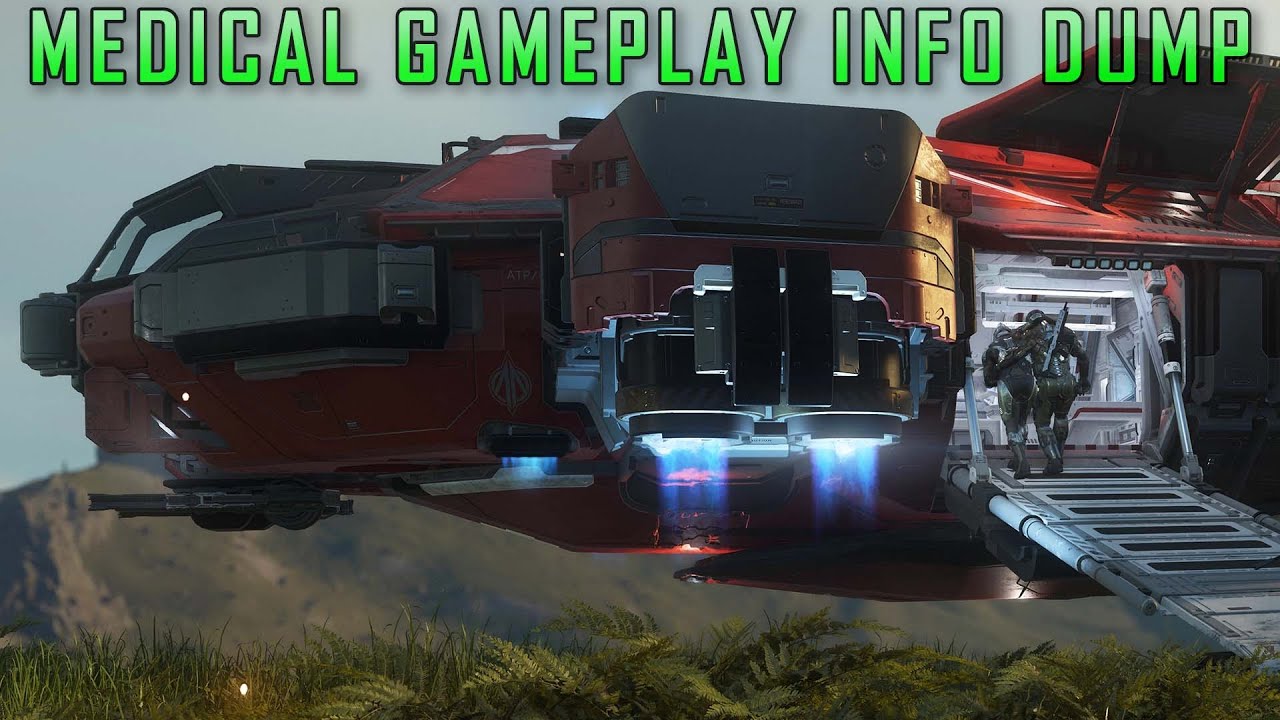SaltEMike reviews the current medical system in Star Citizen’s 4.3.1 PTU update, highlighting its clunky mechanics, high and arbitrary healing costs, and the awkward use of med gel, while expressing concerns about the economic balance and player experience. He is cautiously optimistic about future improvements like multiple medical bed imprinting, customizable healing services, and strategic respawn options, but stresses the need for meaningful death consequences and better integration with insurance and economy systems to maintain game immersion and player motivation.
In this video, SaltEMike reacts to the recent extensive information dump on medical gameplay in Star Citizen, specifically focusing on the 4.3.1 PTU update and future plans. He begins by reviewing the current medical system, explaining how injuries affect player capabilities, such as aiming, movement, and stamina, with different tiers of severity. He notes that while on-site treatments and medical tools exist, the current system feels clunky and somewhat unclear, especially regarding the use of med pens and understanding which treatment applies to which injury. He also critiques the existing medical bed mechanics, particularly the high and seemingly illogical costs of healing injuries, which do not scale with injury severity and feel disconnected from the in-game economy.
SaltEMike then delves into the role of med gel, a vital consumable resource for healing that fuels everything from medical tools to beds. He highlights the expensive nature of med gel and the awkwardness of its usage, such as the lack of a med gel canister removal mechanic before reloading beds. The economic aspect of medical treatment is a major concern for him, as the costs seem arbitrary and do not reflect a realistic or player-friendly system. He also points out issues with imprinting and regeneration mechanics, noting that while players can respawn at medical beds, the effective range and some functional aspects are still unreliable or unimplemented.
Moving on to future developments beyond 4.3.1, SaltEMike reads through the design brief that outlines planned improvements to medical gameplay. The biggest upcoming change is the ability for players to imprint on multiple medical beds simultaneously and choose their regeneration location upon death. This would provide significant strategic options and potentially solve many current frustrations, such as the long wait times and inconvenient respawn locations. He emphasizes how this new system could allow players to re-equip gear and select ships at the point of respawn, greatly improving the post-death experience and addressing long-standing complaints about the game’s transit and insurance systems.
The video also covers planned enhancements to medical bed conditions, permissions, and the introduction of automated med gel restocking, as well as destructible beds and player-set fees for healing services. SaltEMike appreciates the sandbox potential of these features, such as players running medical services in player-owned bases or ships with customizable access and fees. However, he remains skeptical about the timeline for these improvements and the overall integration with other gameplay systems like insurance and economy. He stresses the need for death to have meaningful consequences to maintain player motivation and immersion, warning against systems that make death and loss trivial, which could harm the game’s long-term health.
Finally, SaltEMike reflects on the broader implications of medical gameplay and death mechanics in Star Citizen. He compares Star Citizen’s approach to other games with gear fear, like Escape from Tarkov and Eve Online, noting the polarizing nature of these systems among players. He stresses that while some players enjoy the challenge and risk, others find it frustrating, highlighting the importance of balancing loss and recovery mechanics. He concludes by expressing hope that future updates will address these issues thoughtfully, particularly the insurance system, which currently undermines the intended risk and reward dynamic. Overall, he sees promise in the direction of medical gameplay improvements but remains cautious about their execution and impact.
